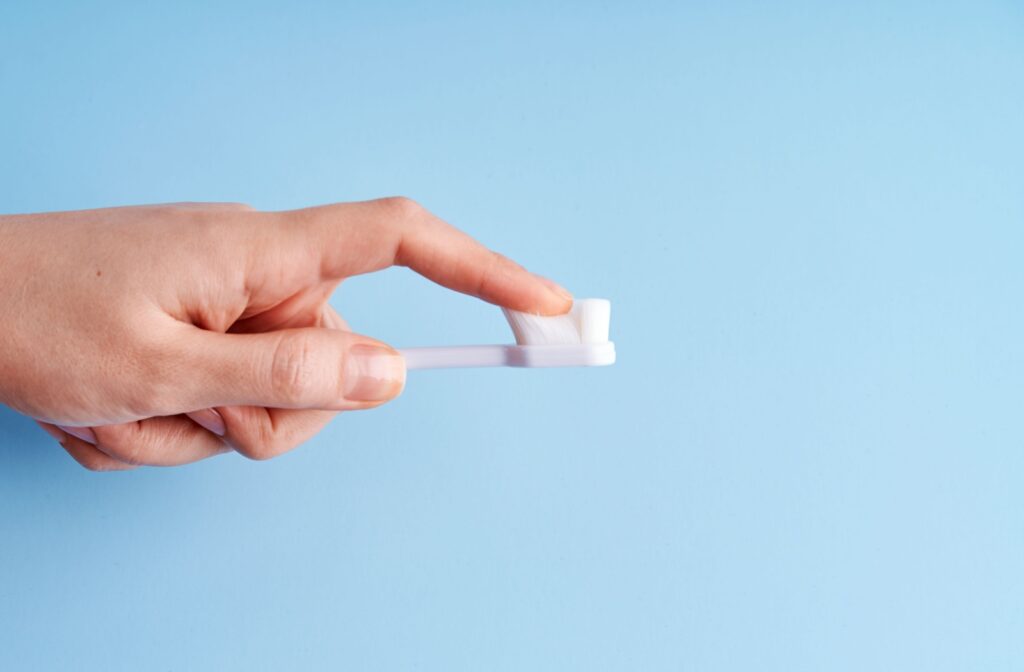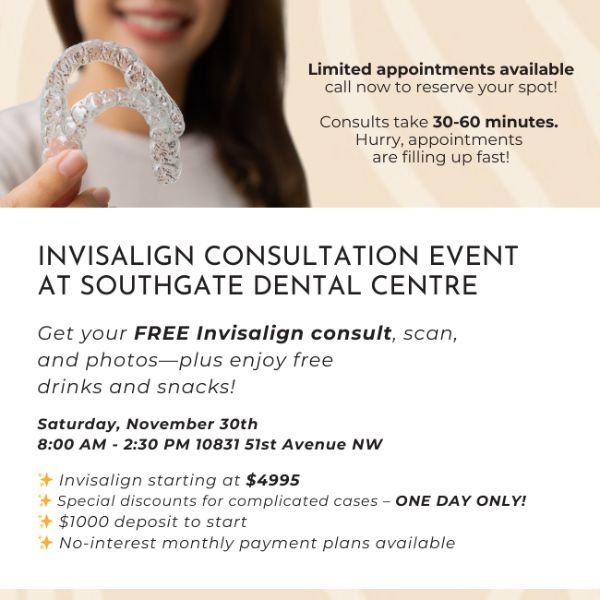If you’ve ever experienced a sharp pain in your teeth after enjoying your sugars, you aren’t alone. Tooth sensitivity is a common problem, and many people experience this every year. But what exactly causes this discomfort, and what can you do about it?
If you deal with tooth pain when you eat sugar, it’s likely due to:
- Cavities
- Receding gums
- Tooth grinding
- Recent dental work
What Causes Tooth Sensitivity?
Your teeth are a complex structure designed to help you chew and digest food. Each tooth has several layers:
- The enamel, which acts as a sort of shield for the internal structures of the teeth
- The dentin, the second layer that’s both soft and porous, helping to protect the innermost part of your teeth
- The pulp, which is where the nerves and blood vessels reside
When the enamel is damaged, or the more sensitive parts of the teeth are exposed, your teeth feel much more sensitive. They’re easily irritated, inflamed, or painful. Sugar can trigger these sensations, and there are a few different reasons why.
Cavities
Over time, cavities can create small pits, gaps, and holes in the enamel called cavities. Cavities expose the dentin, which is porous, sugar will stimulate the pulp and cause the tooth to ache. Since the pulp chamber only has pain nerve endings, if stimulated, you will feel the tooth pain. This pain felt instantly.
When you eat sugar, it can cause a chain reaction in your mouth. Bacteria use the sugar as an energy source and produce acids as a byproduct. These acids can attack, wear down, and destroy the enamel of your teeth, leading to surface damage. There is usually a time delay when feeling this tooth pain.
Cavities are one of the most common causes of tooth sensitivity. If you suspect you have a cavity, visit your dentist as soon as you can. They can treat the problem and help you find relief from your irritation.
Receding Gums
Gum recession is another common cause of tooth sensitivity. Your gums are responsible for protecting the roots of your teeth. When they recede, it exposes the sensitive porous dentin areas and can cause pain when exposed to sugar.
There are many potential causes of gum recession, but some common ones include:
- Gum disease
- Overly aggressive brushing
If you suspect that your tooth sensitivity is due to receding gums, talk to your dentist as soon as you can. Gum recession can expose your teeth to significant damage further down the line, and should be addressed as soon as possible.
Tooth Grinding
If you’ve ever caught yourself subconsciously clenching or grinding your teeth—especially when sleeping or stressed out—you’re likely dealing with something called “bruxism.”
This is a habit that can seriously damage your teeth over time. The constant pressure and friction can wear down the enamel, leading to:
- Sensitivity
- Fractures
- Chips
- TMJ pain (pain in your jaw joints)
- Cracked teeth
While it may not be the easiest thing, avoiding teeth grinding is crucial—it can prevent all of these problems and more. This is a serious habit that can cause damage to the enamel and expose the dentin over time.
You can visit your dentist to discuss solutions, like stress management and using a mouthguard while you sleep.
Recent Procedures
If you’ve recently had a dental procedure, it’s not unusual to experience some sensitivity afterward—especially if you’re regularly eating sugar. This feeling can be caused by:
- Fillings
- Crowns
- Whitening procedures
There is good news, though; this should subside within a few days to a few weeks. If the pain is severe or persists longer than expected however, it’s important to follow up with your dentist. They’ll be able to monitor your recovery and give you advice on preventing sensitivity while you heal.

Tips for Preventing Tooth Sensitivity
Tooth sensitivity is a more common problem than most people think. Fortunately, it’s also often preventable. It helps to:
- Practice proper oral hygiene. Brush 2 times a day with a soft-bristled toothbrush and fluoride toothpaste and floss regularly.
- Use mouthwash daily to kill residual bacteria and prevent acid buildup
- Follow a balanced diet rich in fruits and vegetables
- Limit your sugar intake
- Limit the acidic intake from sports drinks and juices
- Rinse your mouth with water after eating and drinking
Finally, don’t forget to regularly visit your dentist. Regular dental exams and cleanings are an essential step towards preventing tooth sensitivity, and keeping a close watch for any potential problems.
Get Help for Your Tooth Sensitivity
Desensitizing toothpaste, like Sensodyne, is the first line of defense for tooth sensitivity.
If you’re experiencing persistent tooth sensitivity, don’t ignore it. Instead, come talk to our team at Southgate Dental Centre. We’re here to help find the cause of your discomfort, and we’ll work closely with you to find a solution that works for you.
Whether you need a filling, a gum treatment, or even just some advice, we’re here for you. Request an appointment with us today to take the first step toward preventing tooth sensitivity!



